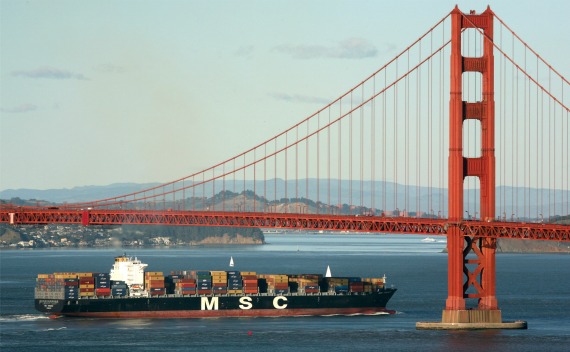CFR’s Task Force on U.S. Trade and Investment Policy
More on:

Today the Council on Foreign Relations is releasing its independent Task Force report, “U.S. Trade and Investment Policy.” Led by Andrew H. Card -- former White House Chief of Staff under George W. Bush – and Thomas A. Daschle – former U.S. Senator and Senate Majority Leader – and directed by my CFR colleagues Edward Alden and Matthew Slaughter, the 22 members took on the increasingly thorny issue of the future of U.S. trade policy.
One of the most interesting discussions within the report is of multinational corporations. While representing less than 1 percent of all companies, they provide nearly a quarter of all private sector jobs, nearly 40 percent of all U.S. capital investment, and conduct the vast majority of research and development. These are the engines of today and tomorrow’s economy – and as such the United States needs to become much more competitive in attracting these corporations to its shores.
Another important discussion involves the increasing skepticism among the U.S. public toward trade’s benefits. The group rightly points out this has occurred not because of the general public’s lack of understanding or “ignorance", but because of the experience of the average American worker. Over the last ten years –the time frame within which trade became a much harder sell -- nearly all American workers saw their real earnings fall. U.S. based export oriented jobs – which in general pay more than domestically oriented ones – haven’t grown, even as the world economy exploded. Inequality too has grown during this time frame. And while the report rightly points out that trade was not the only, or perhaps even the deciding factor behind these shifts, it did play a role. As such, any new policy must take into account and work to enhance the widespread benefits of trade for America’s citizens.
Too often participants in policy debates come out as for or against trade, without defining for what end. Here, the Task Force usefully defines the main goals of U.S. trade and investment policies as “improving American living standards and advancing America’s broader interests.” To better meet this end it provides several concrete recommendations, including prioritizing service sector opening in ongoing trade negotiations, reforming the tax code and removing protectionist regulations on international mergers and acquisitions in order to encourage foreign investment in the United States, streamlining the WTO and creating stronger international trade enforcement mechanisms, and expanding adjustment assistance programs to provide a broader safety net for American workers.
As is often the case in trade oriented debates, Task Force members weren’t able to reach a unanimous consensus on what a better trade policy would look like, and how to get there. It is worth looking at the additional dissenting views section to get a sense of the varied perspectives on the report’s conclusions. Still, everyone did agree to the Task Force’s basic takeaway – that the administration and Congress must revise America’s trade strategy or risk losing out on the enormous potential gains of deeper global engagement. The report is well worth a read, offering insights on how the United States can emerge from the recession and financial crisis a stronger and more capable leader in the international economy.
More on:
 Online Store
Online Store